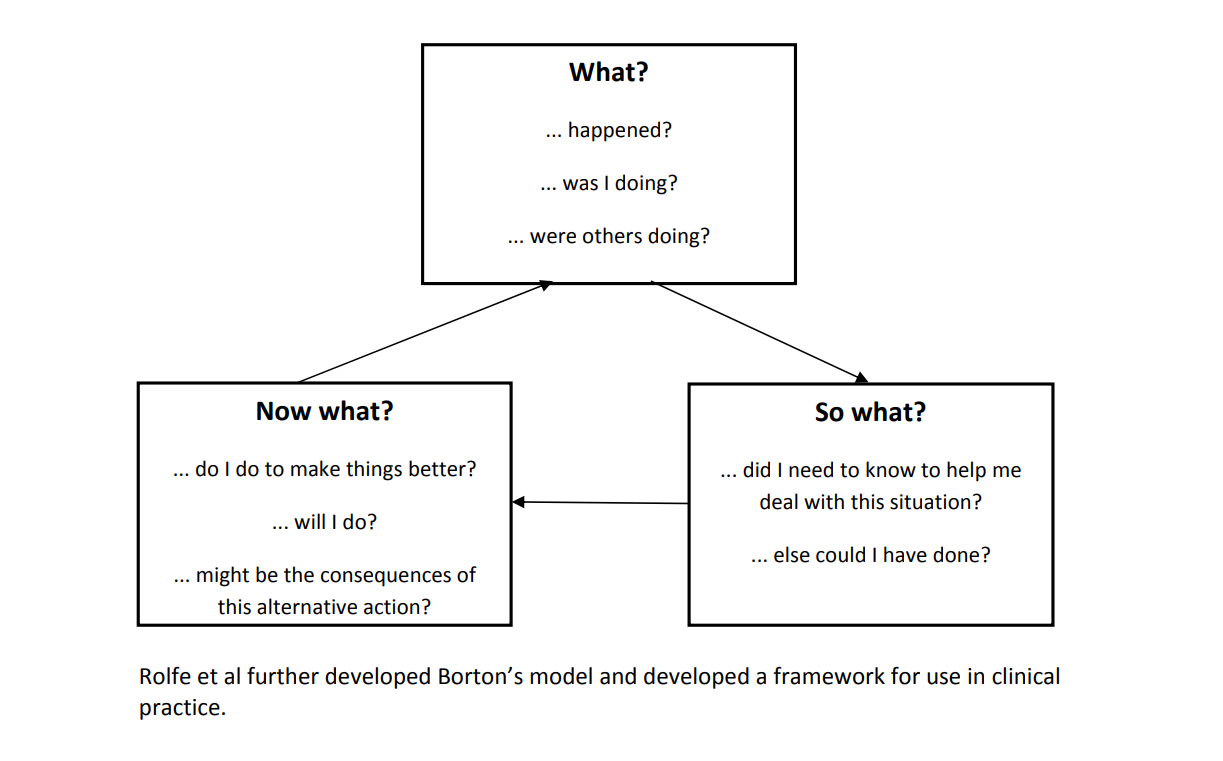What is reflective practice?
Reflective practice is a process! You stop and think about your practice, analyse your decision making and draw on theory, and then relate this back to what you do in practice. Key componments of reflective practice are critical analysis and evaluation. Both help to refocus your thinking on your existing knowledge and helps generate new knowledge and ideas. As a result, you may change your actions, behaviour, treatments and learning needs.
You should make time to write down your reflections, as this process often helps clarify thoughts. This will also give you some written evidence to share with others at a later date. You can use the suggestions on this page to help further develop your own reflective practice.
Ways reflection can be done.
Reflective practice can be done by yourself or you could involve a wider team and both can form part of your CPD profile, but you must remember to keep information about your service users confidential. You can do this by making sure to anonymise sensitive information that can identify individuals from your notes before submitting these as part of your portfolio.
- Visit the HCPCs standards on reflective practice to find out more on what can count as reflective practice and how to record it in your CPD profile: Reflective practice | The HCPC
- The HCPC's confidentiality guidance for registrants provides further information on their service user confidentiality standards.
A reflective practice tool
This tool has been developed by the BDA as an aid to support reflection and is based on a framework developed by Rolfe et al. Learning through reflection is more meaningful if you go through a structured process. There are a number of models which aid the reflective process. Some examples of models you might want to look at further are: Borton (1970), Gibbs (1998), Schon (1983) Rolfe et el (2001).
Borton developed a model of reflection based on three questions:

Rolfe et al further developed Borton’s model and developed a framework for use in clinical practice.
Tool for reflection
| What? | So what? | Now what? |
| Description stage of reflection | Theory and knowledge building stage of reflection | Action‐oriented stage of reflection |
|
What is the
What was my role in the situation? What was I trying to achieve? What actions did I take? What was the response of others? What were the consequences
For others what feelings did it invoke
What was good/bad about the experience? |
So what does this tell me / teach me/ imply/ mean about
So what was going through my mind as I reacted? So what did I base my actions on? So what other knowledge can I bring to the situation? So what could be done to make it better? So what is my new understanding of the situation? So what broader issues arise from the situation? |
Now what do I need to do in order to
Now what broader issues need to be considered if this action is to be successful? Now what might be the consequences?
|
Adapted from Rolfe et al (2001)

